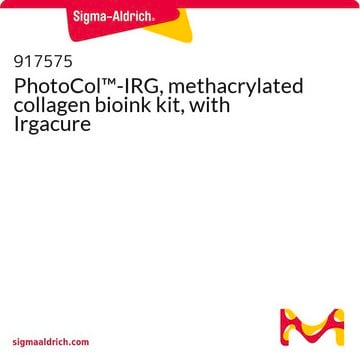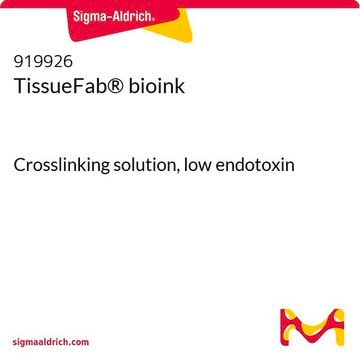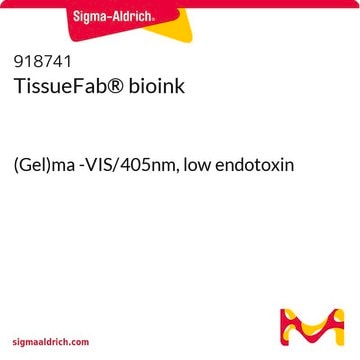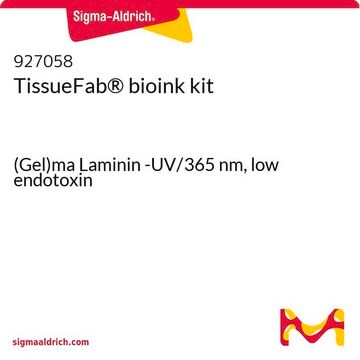추천 제품
애플리케이션
This bioink is derived from natural polymers − alginate and gelatin. Alginate also known as sodium alginate or alginic acid, is a natural biopolymer obtained from brown algae. Alginate is a natural polysaccharide widely used in tissue engineering. Gelatin contains bioactive peptide sequences similar to native extracellular matrix which promotes integrin mediated cell adhesion and MMP sensitive enzymatic degradation which are essential for cellular functions such as migration, proliferation and differentiation.
특징 및 장점
- Ready-to-use formulation optimized for high printing fidelity and cell viability, eliminating the lengthy bioink formulation development process
- Step-by-step protocols developed and tested by MilliporeSigma 3D Bioprinting Scientists, no prior 3D bioprinting experience needed
- Suitable for different extrusion-based 3D bioprinter model
포장
법적 정보
Storage Class Code
12 - Non Combustible Liquids
WGK
WGK 3
시험 성적서(COA)
제품의 로트/배치 번호를 입력하여 시험 성적서(COA)을 검색하십시오. 로트 및 배치 번호는 제품 라벨에 있는 ‘로트’ 또는 ‘배치’라는 용어 뒤에서 찾을 수 있습니다.
문서
약물 검사, 질병 모델링, 체외 장기 이식을 위해 바이오잉크를 기능성 조직 구조체로 3D 바이오프린팅할 수 있습니다. 특정 조직 공학 응용분야에 맞는 바이오잉크 및 분석법을 선택하십시오.
Bioinks enable 3D bioprinting of tissue constructs for drug screening and transplantation; select suitable bioinks for specific tissue engineering.
Learn how 3D bioprinting is revolutionizing drug discovery with highly-controllable cell co-culture, printable biomaterials, and its potential to simulate tissues and organs. This review paper also compares 3D bioprinting to other advanced biomimetic techniques such as organoids and organ chips.
자사의 과학자팀은 생명 과학, 재료 과학, 화학 합성, 크로마토그래피, 분석 및 기타 많은 영역을 포함한 모든 과학 분야에 경험이 있습니다..
고객지원팀으로 연락바랍니다.
